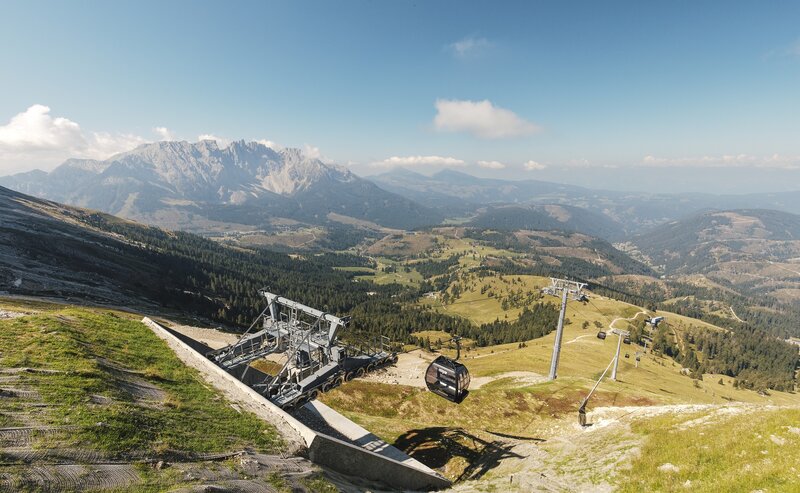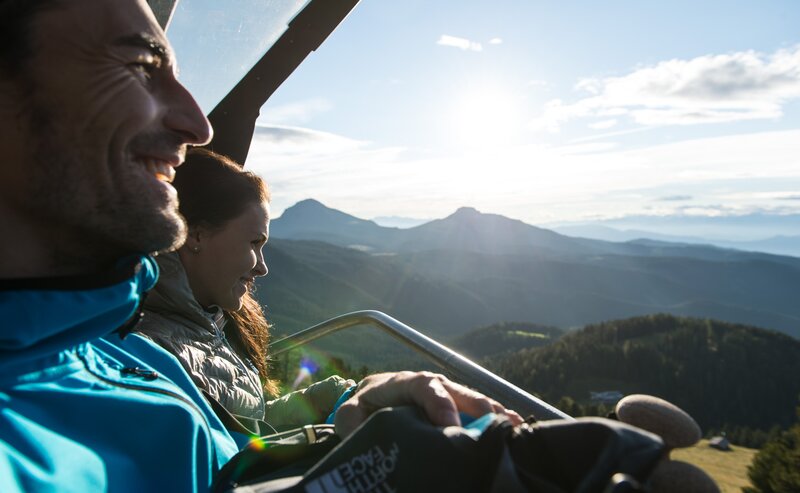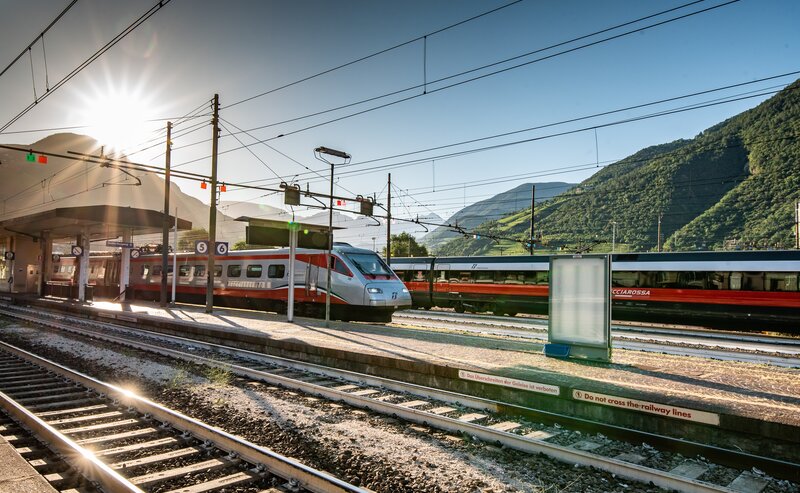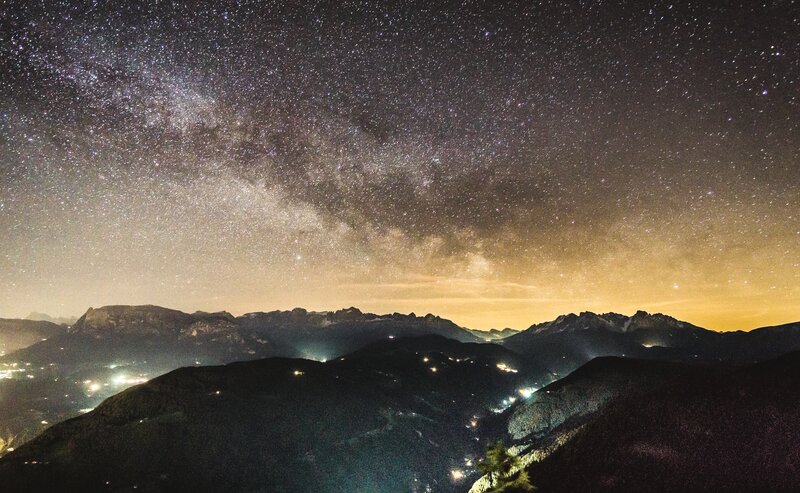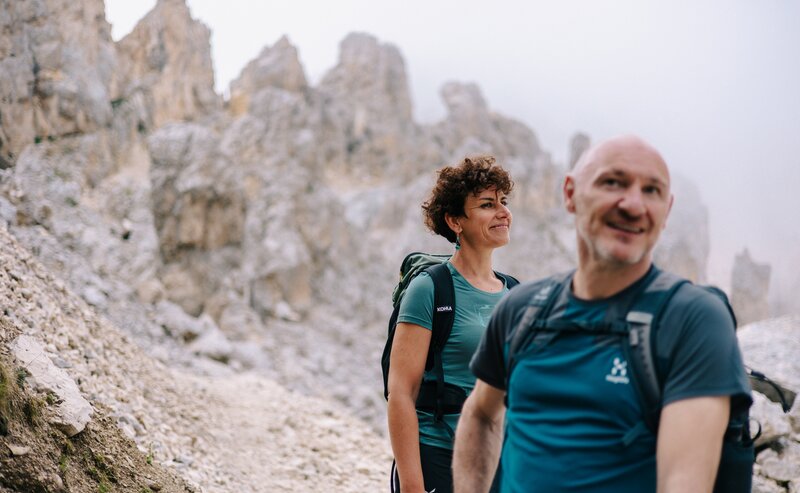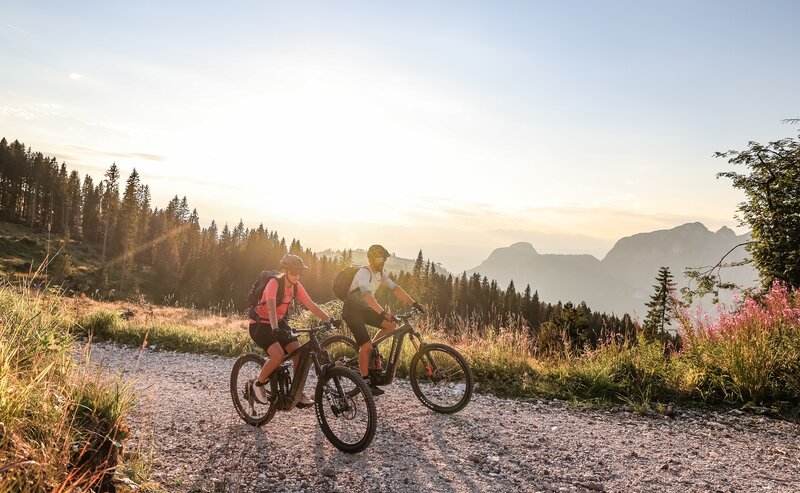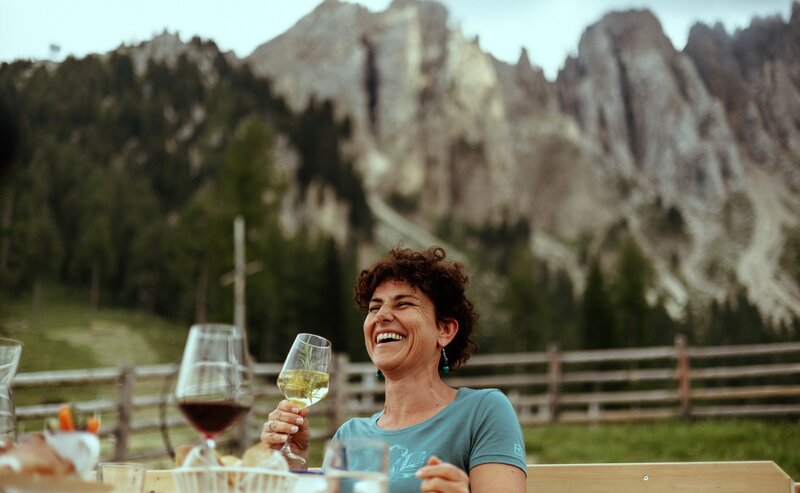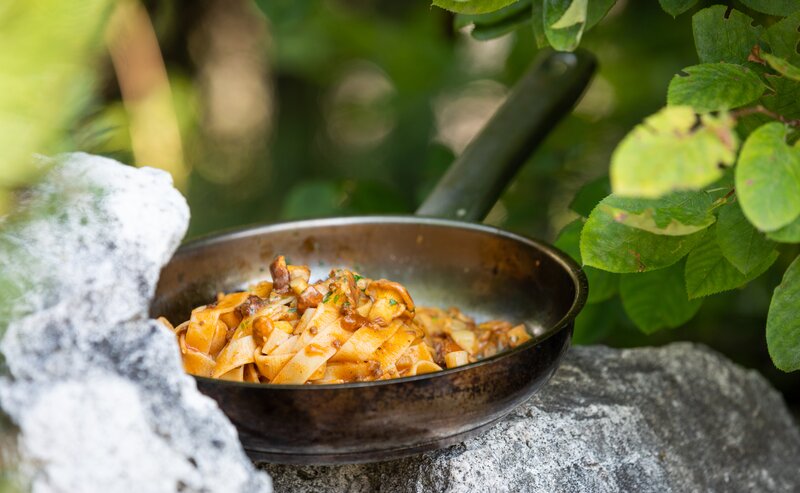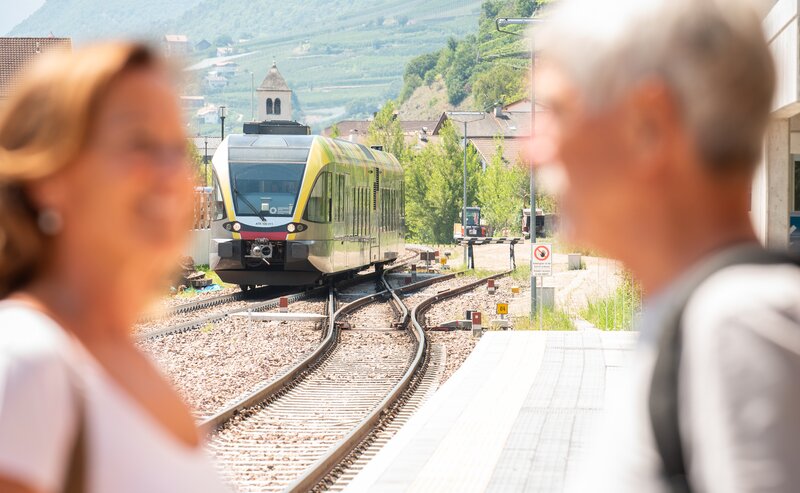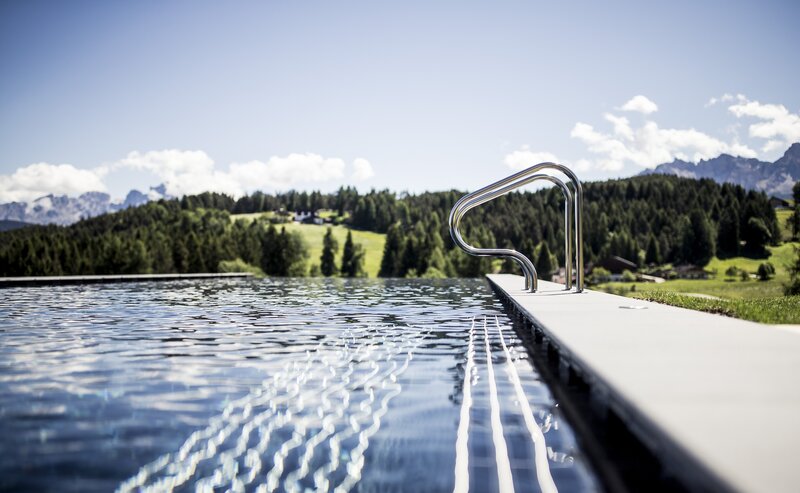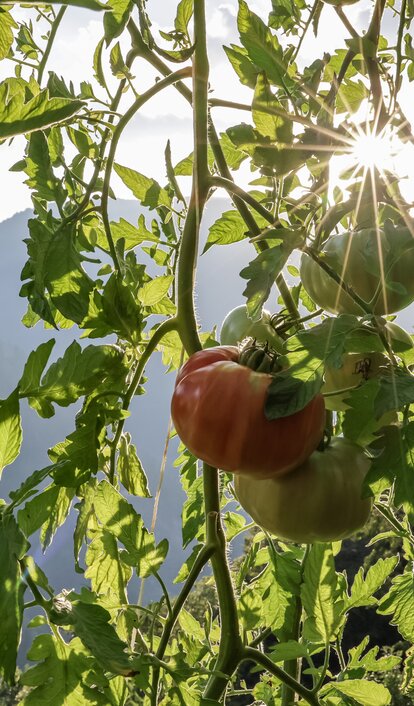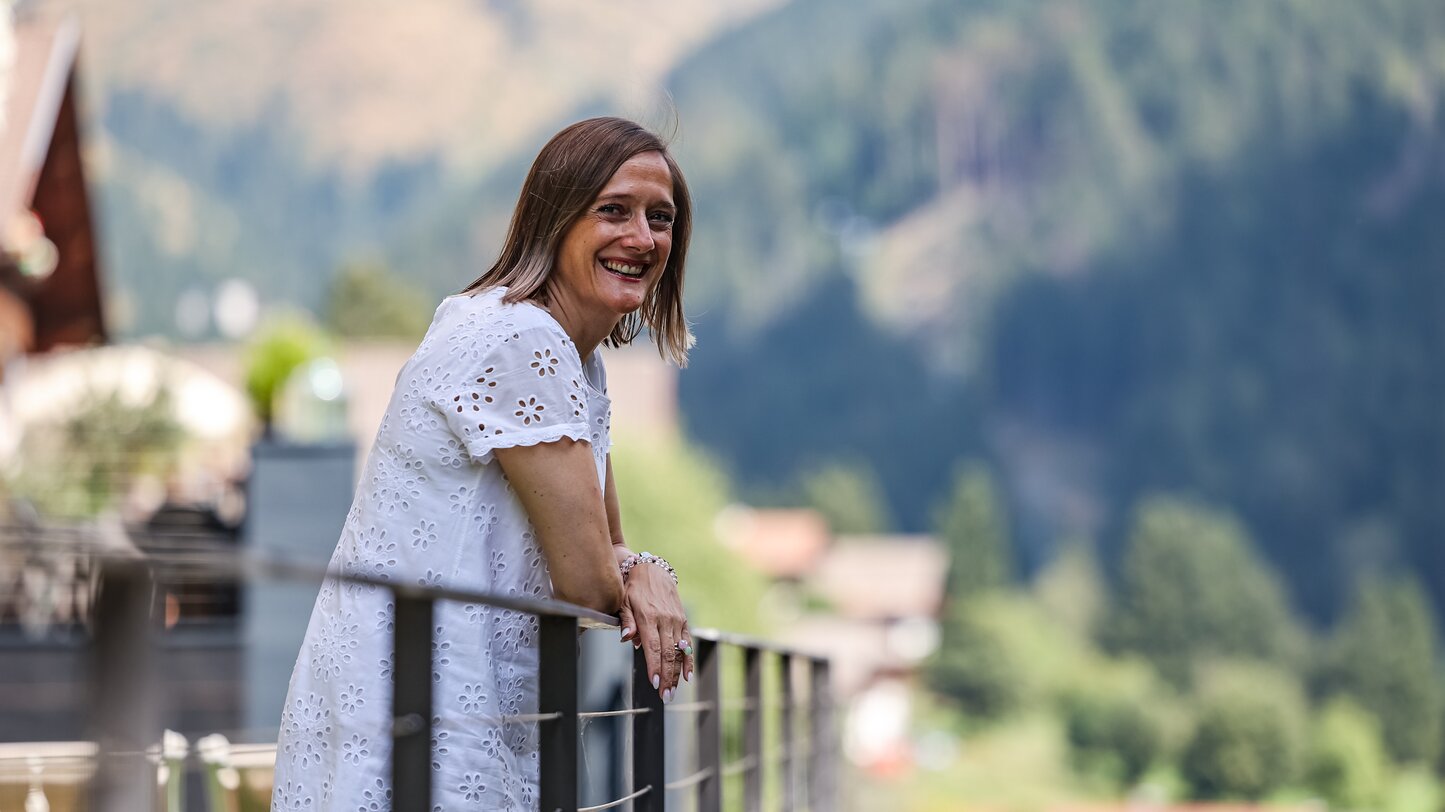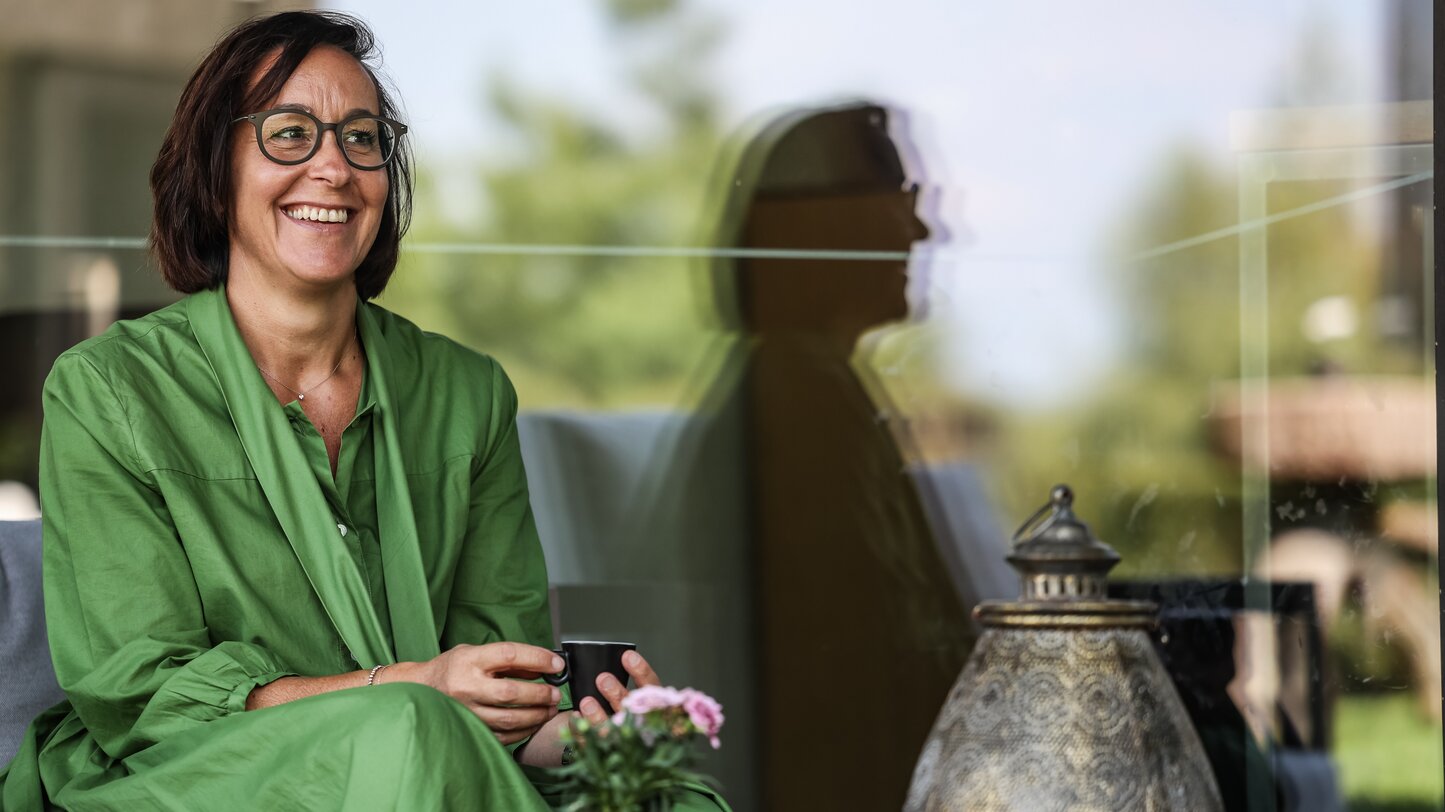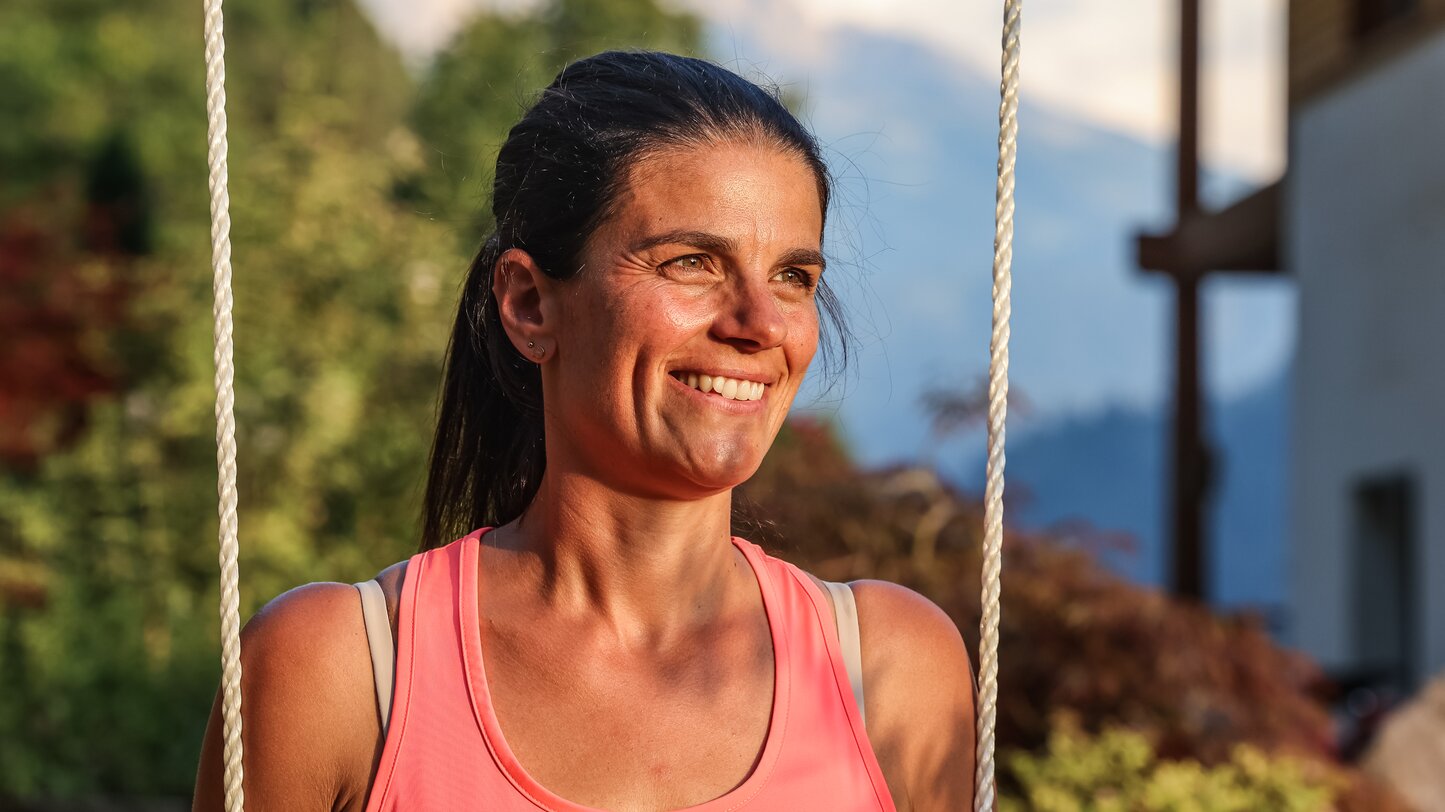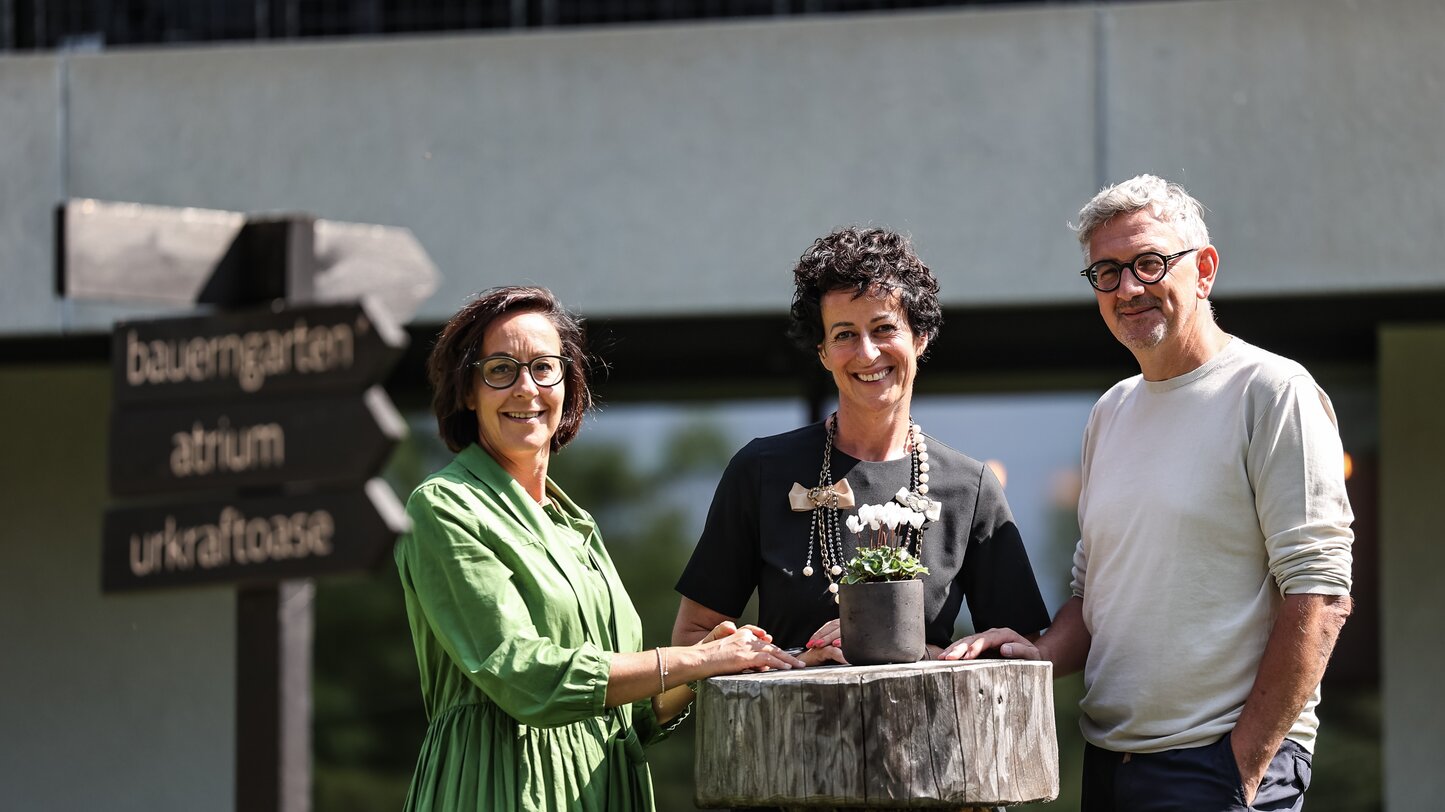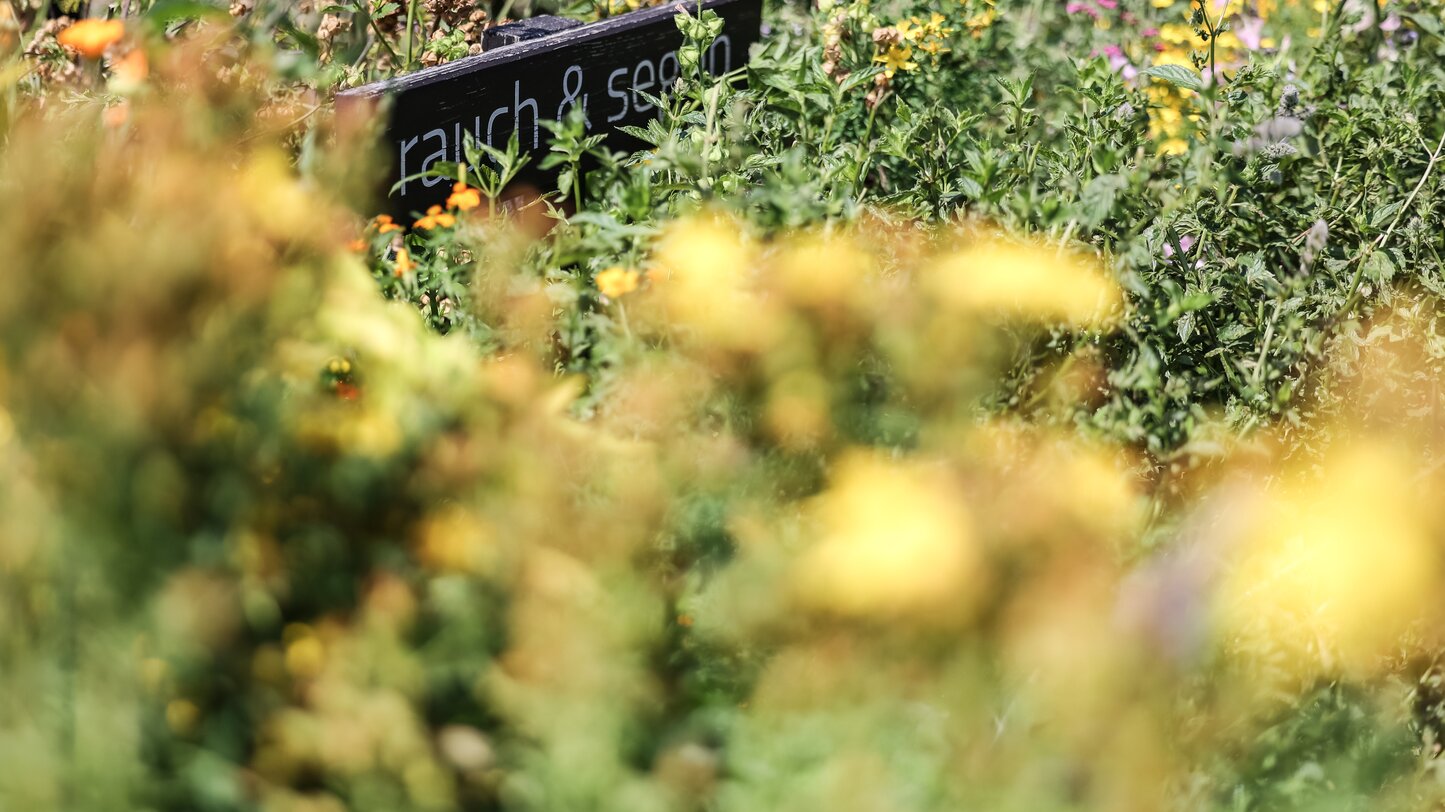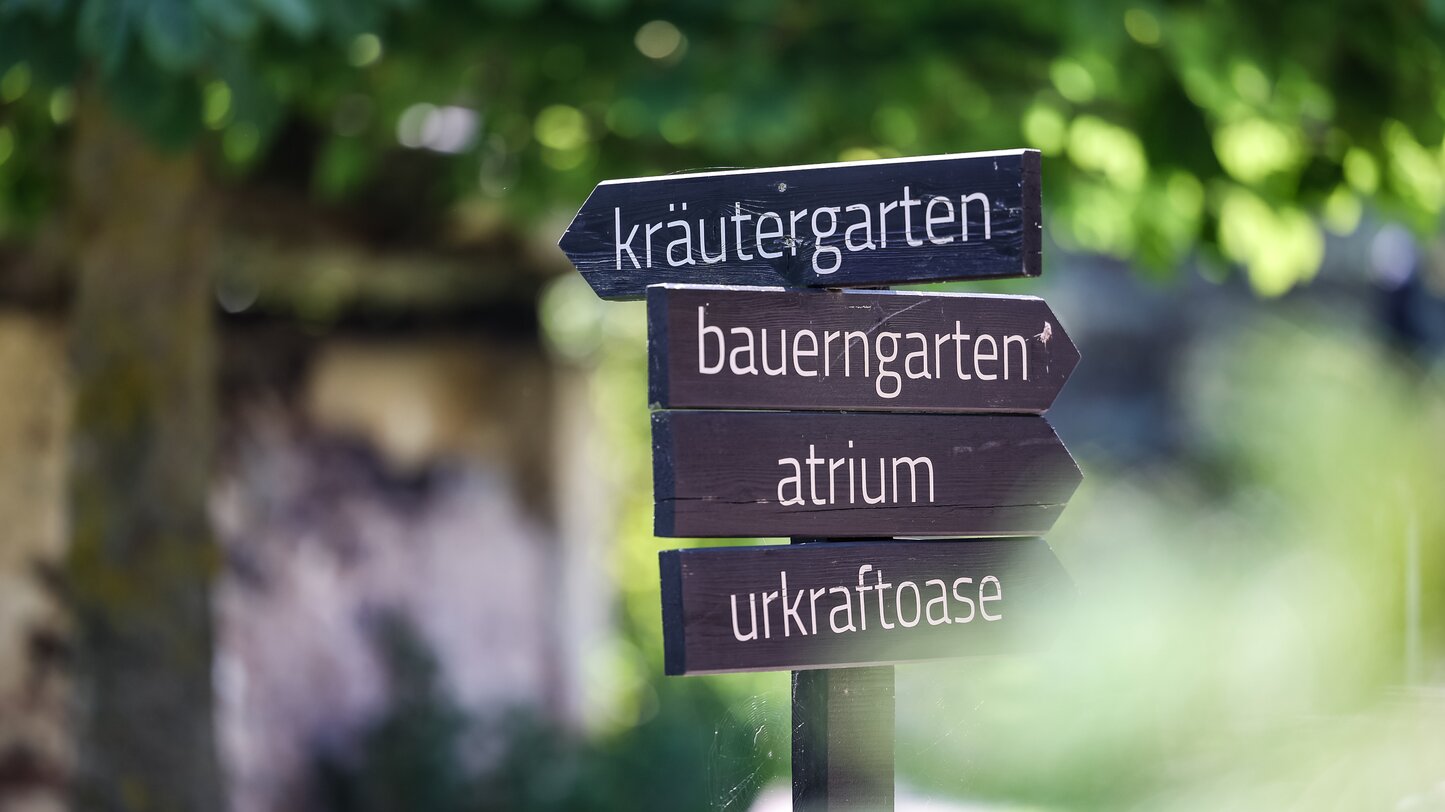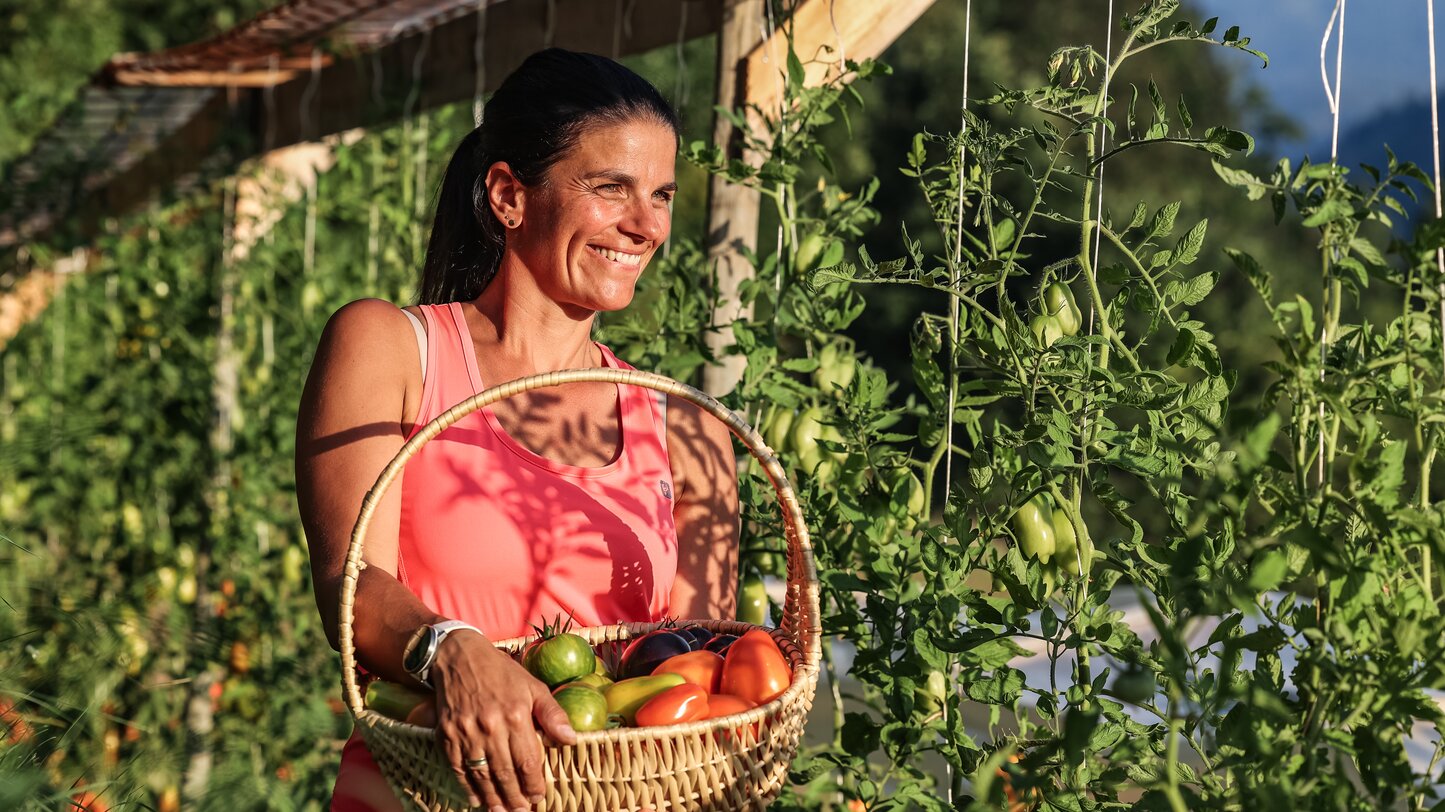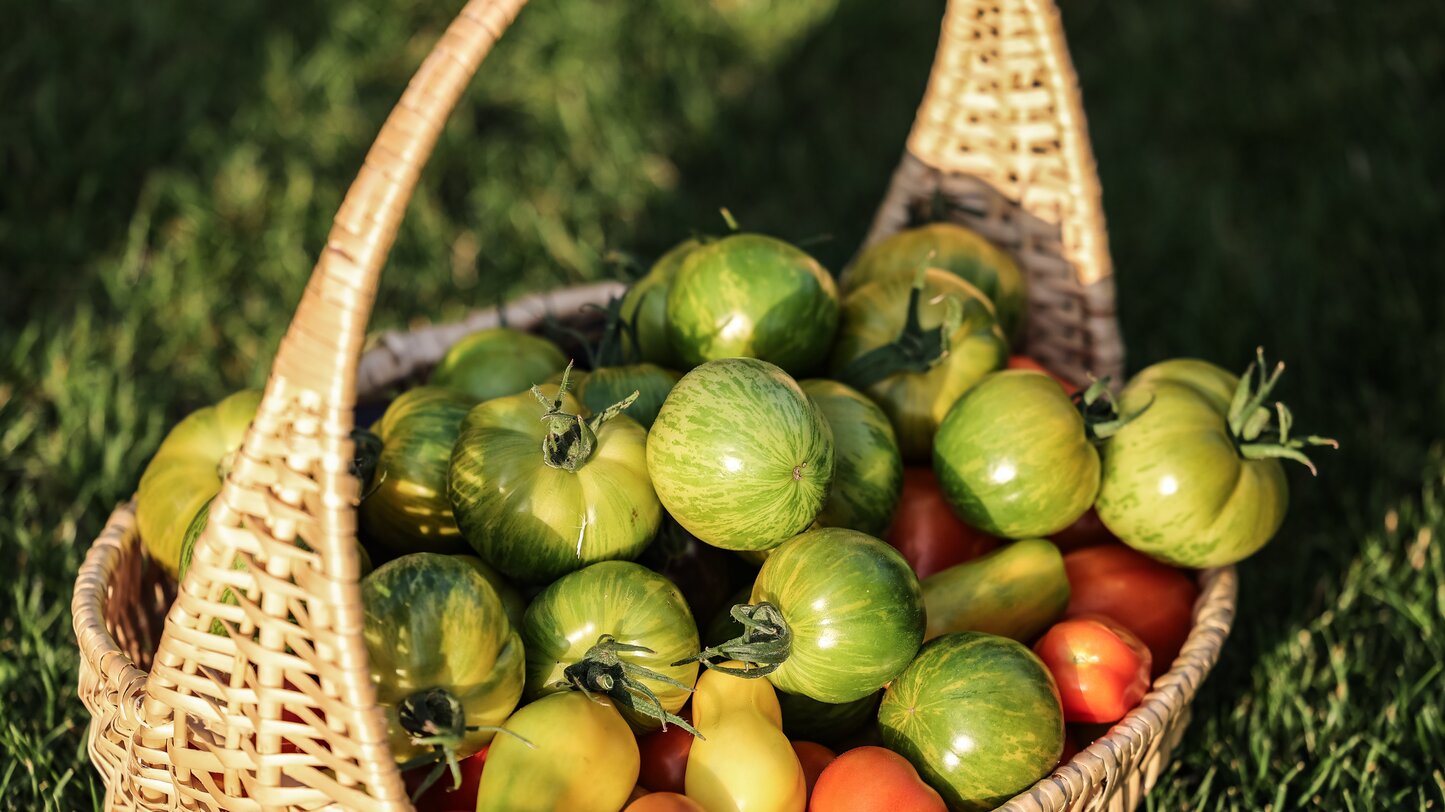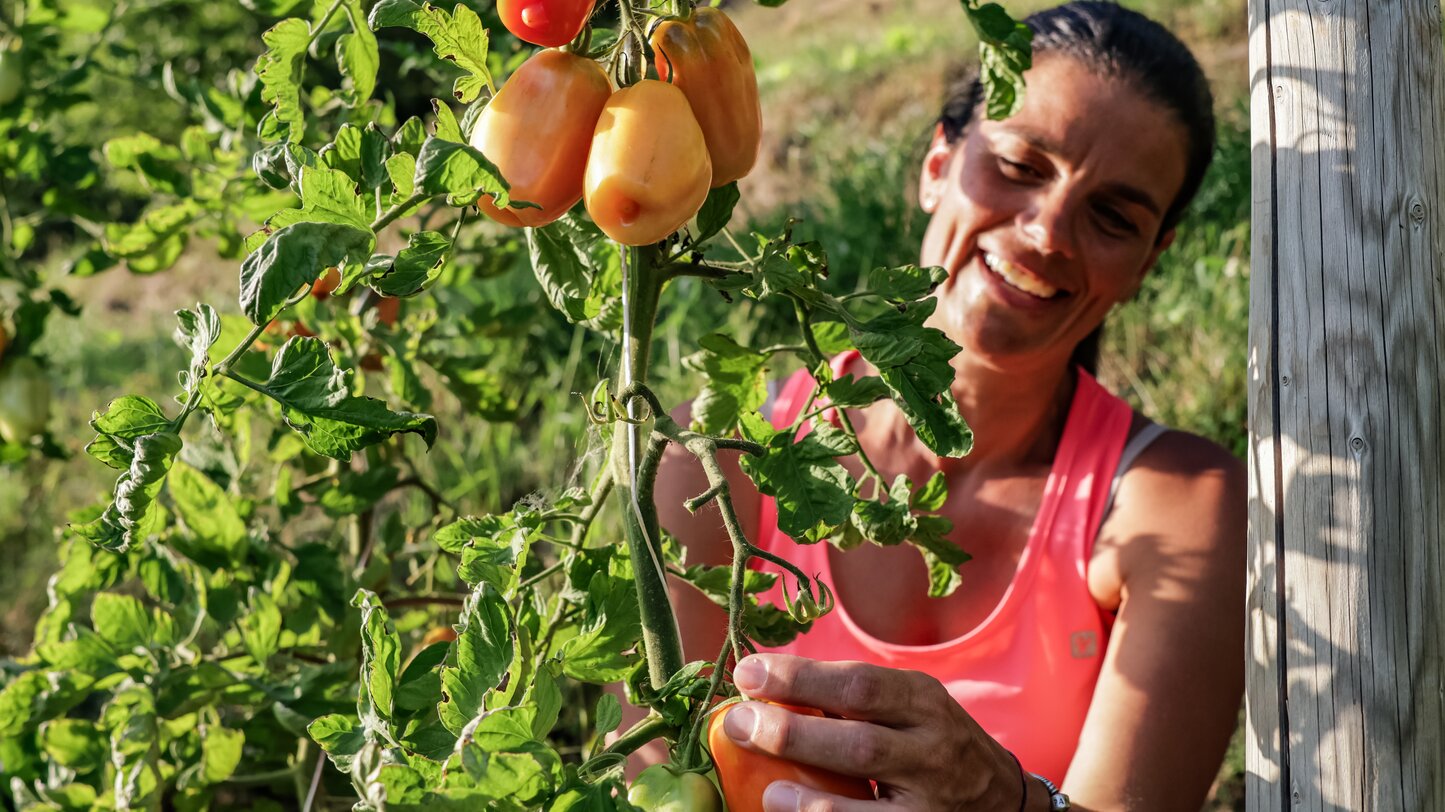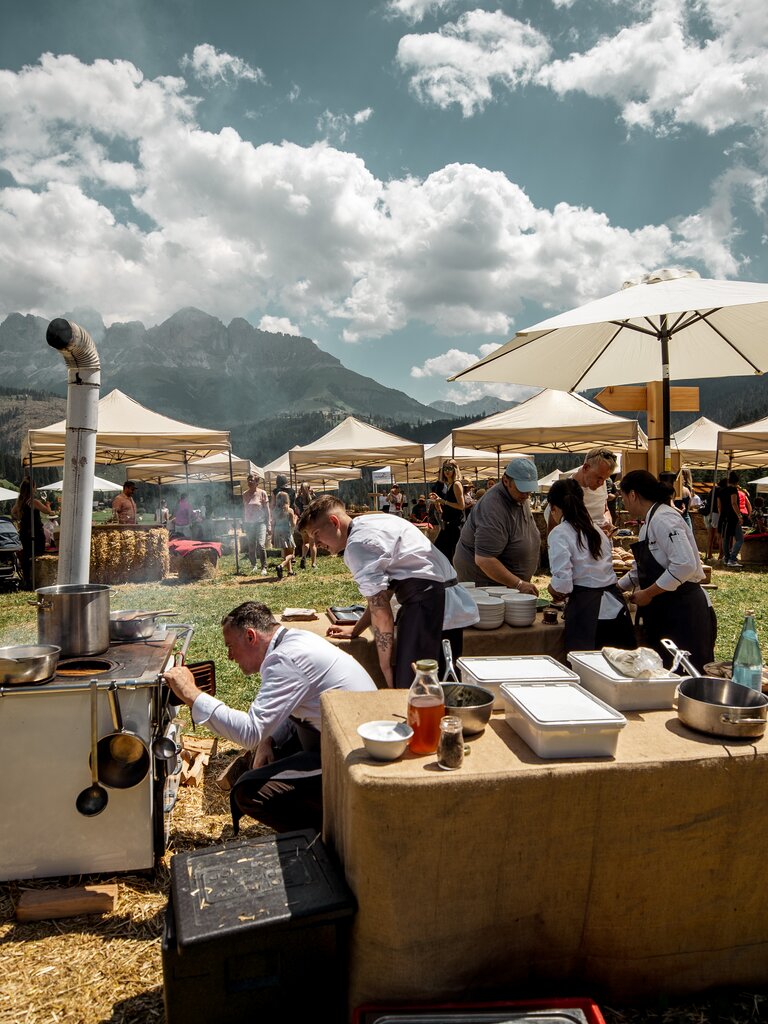Issues close to the heart
The Eggental Valley is deeply committed to sustainability. Many in the region are hard at work on a variety of projects to ensure that the unique landscape around the Rosengarten and Latemar mountains remains both liveable and loveable. What this kind of commitment can look like is demonstrated by the examples of three women who, when it comes to sustainability, don’t just talk the talk, but also eagerly walk the walk.
Small steps to a big goal
“We probably don’t even know about everything that we have achieved,” says Katja Rechenmacher Fäckl. As a Welschnofen councillor, sustainability officer and the boss at the Hotel Friedrich, when she speaks about sustainability it sounds somewhat low-key. “If everyone just makes a small change, then big things can happen,” she says, as, from her terrace, she turns her gaze in relaxed fashion towards the imposing Rosengarten massif.
As an entrepreneur and local politician, Katja sees daily how the word “sustainability” is sometimes the subject of lively discussion. She describes the everyday polarisation that she observes time and time again thus: “The issue is defined too extremely by some and belittled by others.” Her interpretation of the topic of sustainability is, in contrast, one that aims to unify – and above all is rather pragmatic: “It isn’t a case of taking something away from people or forbidding them from doing something,” she says, making a plea for mutual understanding: “Far more, it is a process whereby together we can make a change by taking many small steps that will have a positive outcome for everyone.”
For this reason too, she cannot say exactly when she and her husband, Christof, began to integrate the idea of sustainability into their everyday lives. In any case, since they took over and renovated Christof's parents’ hotel in 2006, “premium quality” has been right up at the top of Katja and Christof's list of priorities. Their aim is that their guests should find local and regional products on their plates and in their glasses whenever possible. And since then, Katja has noticed two pleasing developments: firstly, that in the region, farmers and producers have a growing awareness of uncompromising quality. And secondly, that their guests increasingly appreciate this quality. “The understanding of the guests for true sustainability is constantly growing,” she says. “Today, many of them want to know exactly what they are eating and drinking and where we obtain our supplies.”
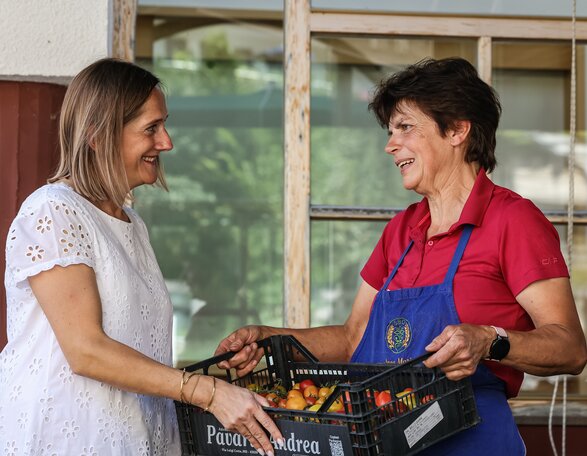
“Today, many of them want to know exactly what they are eating and drinking and where we obtain our supplies.”
Katja is especially proud when she is able to talk about the fruits of a flagship project that she instigated together with Anna-Maria Kofler-Gall from the Kronlechnerhof in Welschnofen. Behind the “regional production cycles” stands a simple, but obvious principle: whatever grows and flourishes in the Eggental Valley should also be eaten there. A scheme that began in Welschnofen on a small scale now functions throughout the local community. Today, around ten farmers supply almost 30 eating establishments with vegetables and eggs from the valley.
For Katja, this is a textbook example of how tourist businesses can contribute towards sustainability. “What tourism has been able to implement has so far not been replicated in any other industry,” she says, even though she is aware that the line between the economy and ecology can be a fine one. Regardless, she is proud of the fact that many facets of the topic of sustainability are visible in the Eggental Valley – due to the fact that it has devised a determined strategy and already implemented concrete projects that promote the economical use of water, mindfulness in the mountains or the organisation of green events.
And yet, Katja knows that there is still a great deal to do. For example, when it comes to private transport: “In rural areas in particular, it is an enormous challenge,” even though she has noticed that the majority of her guests leave their car parked as much as possible during their holiday. Nevertheless she is campaigning for gradual improvements in the public transport offering. Not least because she can see that her own children are less and less interested in learning to drive, explaining that “my son still does not have a driving license at 20 years of age.”
The awareness of young people, she says, is much greater than it was in the past. “Naturally, as a family we want to make our contribution towards caring for and preserving the wonderful place where we live,” says Katja. Discussions that she has had on the subject with her family inspire and reinforce her conviction that together big things can be achieved through small steps. Her work in the municipality is shaped by this conviction too: “Cooperation from the village community is absolutely essential,” says Katja: “Making sure that not only do we talk about sustainability, but also truly put it into practice will take commitment from everybody.”
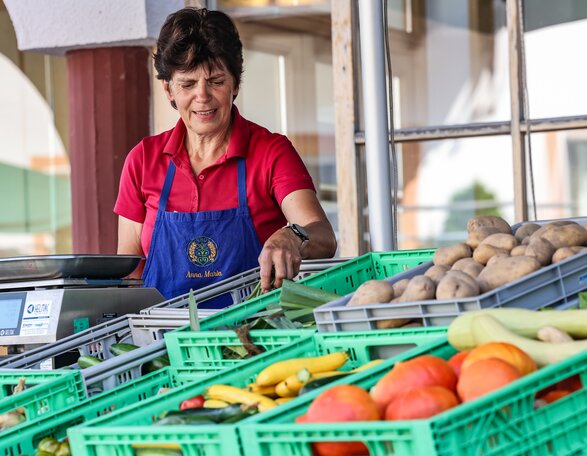
Wholeheartedly in harmony with nature
“We cannot simply carry on doing things the way we used to do them in the past.” When Brigitte Zelger talks about sustainability, it is quickly clear just how much the topic interests her. The desire for change has long driven her, which is why she works towards sustainability both on the municipal council and throughout South Tyrol. And they have long trodden the path towards sustainability at the Hotel Pfösl, which Brigitte runs with her sister, Eva, and her brother-in-law, Daniel, in Deutschnofen. “For decades, everyone’s only goal was to grow, grow, grow,” she says. Today, in contrast, the tourism industry is faced with quite different challenges: “It is no longer only about the economy, but about how we can keep our villages and towns alive whilst still remaining in harmony with nature.”
The Eggental Valley, Brigitte is convinced, is the perfect place for this kind of modern and sustainable tourism. “We have so much peace and space and so many havens,” she says, describing her home, which despite its amazing location is not overcrowded by excessive numbers of guest beds. And since the region has committed itself to sustainability, developed a strategy and been certified, it is able to point with satisfaction to a number of successes: “Of course it always takes people to drive something forwards - but these days there is a passion for sustainability at all levels in the municipality and in the valley, which allows us all to pull together in the same direction.”
In the case of Brigitte Zelger’s remarkable commitment, people are always at the heart of everything she does: both those who live in the Eggental Valley and those who come here to visit. “We all need to meet one another as equals,” is her motto. This is the only way for mutual respect and a common identification with the sustainable approaches here in the Eggental Valley to develop. “If we do sensible things such as not importing meat from Ireland and wine from California, then in the end everyone will benefit.”
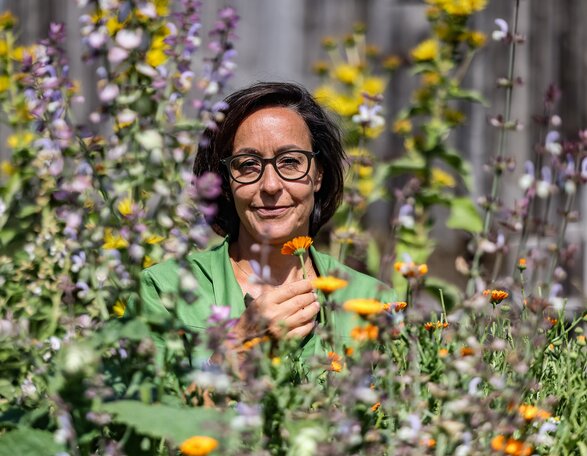
In their business, Brigitte, Eva and Daniel therefore pay close attention to how they deal with food, especially since they discovered that around 40 per cent of the CO2 emissions from a hotel are attributable to food consumption. The entire kitchen team works constantly to produce as little waste as possible and to offer healthy and attractive alternatives to meat dishes. To do so, they have had to put specific and consistent measures into practice – which in many situations have also required them to take a clear stand, for example when guests expect to be served strawberries in winter. “But then we can say with conviction that we don’t do that here.” The Hotel Pfösl serves seasonal and regional produce – some of it even grows on the permaculture field right in front of the building. And the extra special flavours are provided by the magnificently fragrant herb beds that are some of Brigitte's favourite places.
You can feel the fact that Brigitte Zelger is at home here every single second. It is where she recharges her batteries for her many duties. For example with the hotel and restaurant association, where as the sustainability officer she develops plans for opening up ways with destinations and enterprises of putting sustainable ideas into practice. And, of course, here in the Eggental Valley and in her family business, where working sustainably is a project close to her heart. “There is a lot going on,” says Brigitte of what she has noticed. More and more people have been thinking about more and more topics and asking themselves: “Do I have to do that? Do I want that? And can I still justify this?”
Therefore, in her business, acting sustainably has many facets. Carefully nurturing nature is as much a part of it as being mindful of how one treats oneself. Physical and mental balance through healthy eating, active movement in nature, the necessary time for recovery and taking pleasure in beauty. On the one hand, Brigitte, Eva and Daniel want to enable their guests to enjoy these things and at the same time they also want to live their own lives this way too. Taking responsibility for oneself – for them this also means taking responsibility for others.
Full of drive, Brigitte Zelger says, “We all have to continue along the path that we are following.” Driving forward the sustainability process in the Eggental Valley has become more than just her own pet project. Brigitte Zelger believes that it has to be an important project for everyone. If every individual were to make their own contribution to a better environment and a better world, “then we can really change something – and in the end that will make us all happier and more satisfied.”
A vegetable garden almost like paradise
The Schafflbergerhof was once like paradise. Overlooking the Eggental valley from on high there was once a small building with a tiny barn where an old farmer lived in very simple conditions. But here on the steep south-facing slope there was an abundance of other things: water from his own spring and sun from morning until night – which is why tomatoes and many other varieties of vegetable were able to grow so well there. Today, however, nothing remains of the old farm. Instead, Sabine Pichler Weissensteiner lives there with her husband, Karl, and their four children in a modern home with every comfort. But even though a great deal has changed here, the heavenly location remains the same. And on the slope behind the house, tomatoes are now flourishing again.
“Actually we more or less fell into things here,” says Sabine, as she and Karl harvest the fruits of their labours in the magnificent August evening sunshine and prepare crates of tomatoes for delivery the following morning. Sabine’s father will take them to the restaurants in Welschnofen and on the Karer Pass, which are part of the “regional production cycles” project.
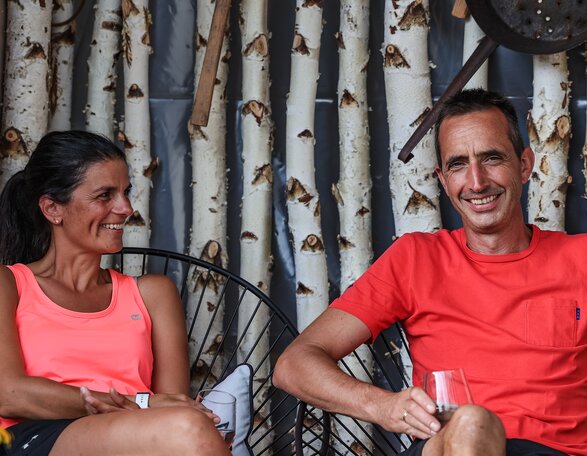
“Whilst in other places people only talk about the topic of sustainability, here we just get on with doing it.”
The idea is for whatever grows here at the Schafflbergerhof and in around ten other large gardens in the valley to ultimately be processed and served here too. Sabine explains the essence of the project thus: “Whilst in other places people only talk about the topic of sustainability, here we just get on with doing it.”
Actually, Sabine and Karl only wanted to plant a few things for themselves in their garden. A couple of chickens, two goats and a few vegetables – they didn’t really want to bother with much more, especially since Karl is busy with his job and Sabine, who is a teacher on parental leave with four children, barely has a spare moment. But when they began to grow tomatoes and all of a sudden had over 100 small plants, things just happened. Sabine and Karl quickly noticed that here on the slopes of the Schafflbergerhof everything grew more or less by itself. “Actually it is hardly possible to imagine how much can come from such a small seed,” says Sabine. And suddenly, in late summer, they had far more tomatoes than they could possibly eat themselves.
Sabine and Karl tend to their garden with love and passion: “It doesn’t feel like work, because it gives us so much pleasure,” they say. As a result, nowadays not only do tomatoes in every colour grow at the Schafflbergerhof, but also cucumbers, courgettes and cabbages. Of course without a generous helping of idealism and passion all of this would not have been possible. But when the vegetables are ripe, then it is not only the restaurants that look forward to the deliveries from this idyllic garden. Sabine, Karl and the children also appreciate what arrives on their table at home. “After all, first and foremost, people need food and drink to live,” says Sabine – and for that reason it is especially important for her to know that her own vegetables only need water, sunshine, time and care to grow: “Of course we can tell from the taste.”
Which is why in Sabine’s home, only tomatoes from her own garden are served at dinner: “We no longer buy them from anywhere else,” she says. So it’s good that for her, the tomato season lasts almost half of the year. The first are already ripe in July – and the last, if they are properly harvested, can ripen in the cellar until Christmas. “We are constantly trying new things,” says Sabine. This includes not only improving the storage conditions, but also growing new varieties and learning every day. She is quite relaxed about the fact that not everything works all the time. And the life she and her family enjoy on the idyllic land of the old Schafflbergerhof is equally relaxed. They may work a great deal here, but they also laugh together a lot. Karl supports her after work and the children also help, even if not always with the same enthusiasm. As a family it brings them together – and now and again they take a break from the garden, jump into their car together and go to the sea for a week. “Otherwise,” says Sabine, smiling all over her face, “we do not need a lot of downtime. Because our lives here are already like being on holiday.”
